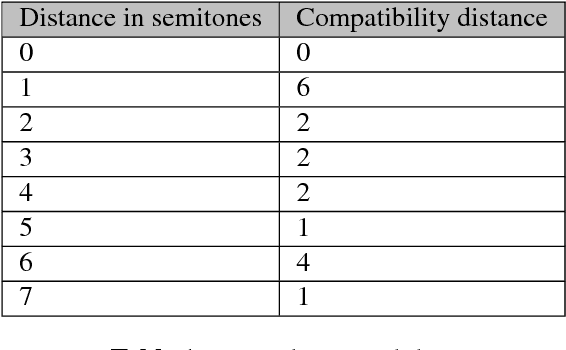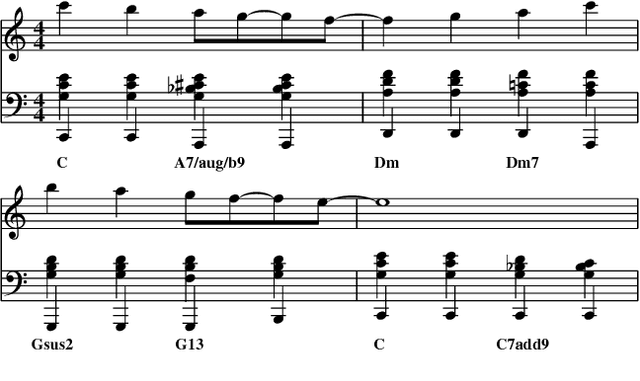Generating Nontrivial Melodies for Music as a Service
Paper and Code
Oct 06, 2017



We present a hybrid neural network and rule-based system that generates pop music. Music produced by pure rule-based systems often sounds mechanical. Music produced by machine learning sounds better, but still lacks hierarchical temporal structure. We restore temporal hierarchy by augmenting machine learning with a temporal production grammar, which generates the music's overall structure and chord progressions. A compatible melody is then generated by a conditional variational recurrent autoencoder. The autoencoder is trained with eight-measure segments from a corpus of 10,000 MIDI files, each of which has had its melody track and chord progressions identified heuristically. The autoencoder maps melody into a multi-dimensional feature space, conditioned by the underlying chord progression. A melody is then generated by feeding a random sample from that space to the autoencoder's decoder, along with the chord progression generated by the grammar. The autoencoder can make musically plausible variations on an existing melody, suitable for recurring motifs. It can also reharmonize a melody to a new chord progression, keeping the rhythm and contour. The generated music compares favorably with that generated by other academic and commercial software designed for the music-as-a-service industry.
 Add to Chrome
Add to Chrome Add to Firefox
Add to Firefox Add to Edge
Add to Edge